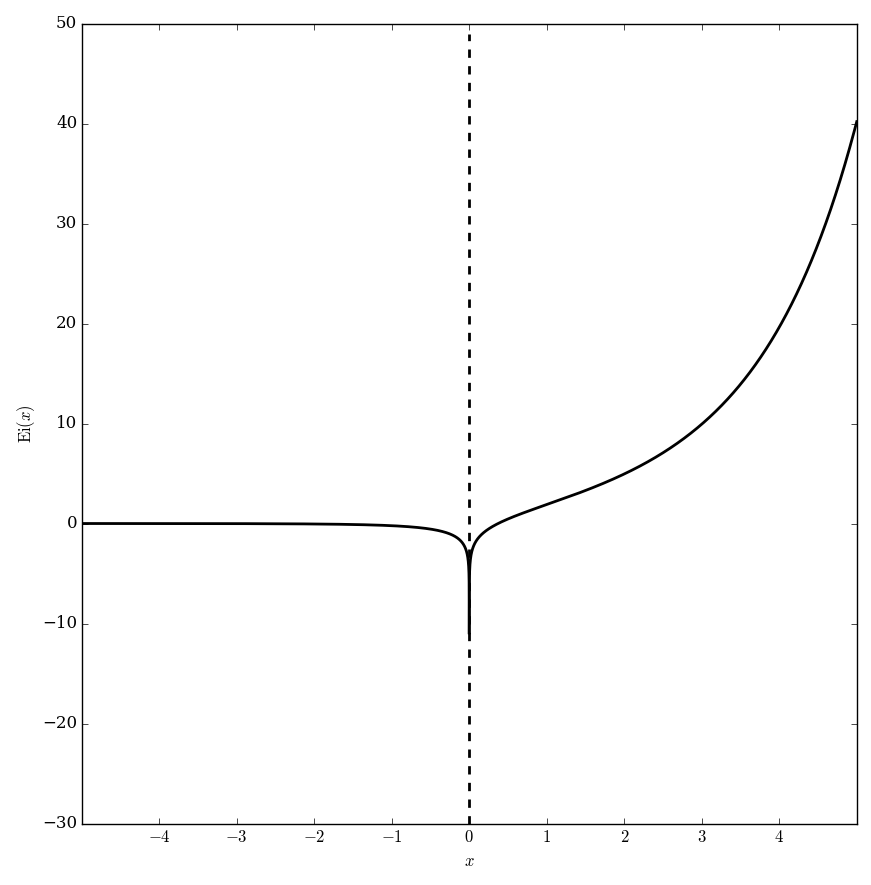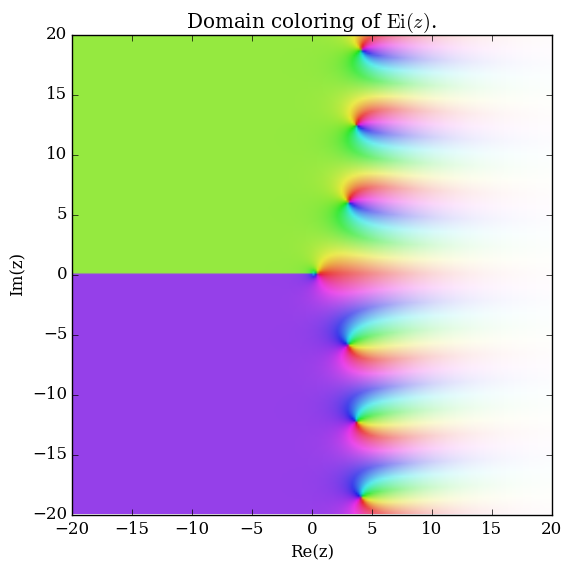Difference between revisions of "Exponential integral Ei"
From specialfunctionswiki
| Line 21: | Line 21: | ||
* {{PaperReference|On certain definite integrals involving the exponential-integral|1881|James Whitbread Lee Glaisher|next=findme}} | * {{PaperReference|On certain definite integrals involving the exponential-integral|1881|James Whitbread Lee Glaisher|next=findme}} | ||
* {{BookReference|Handbook of mathematical functions|1964|Milton Abramowitz|author2=Irene A. Stegun|prev=Exponential integral E|next=Logarithmic integral}}: $5.1.2$ | * {{BookReference|Handbook of mathematical functions|1964|Milton Abramowitz|author2=Irene A. Stegun|prev=Exponential integral E|next=Logarithmic integral}}: $5.1.2$ | ||
| − | |||
{{:*-integral functions footer}} | {{:*-integral functions footer}} | ||
[[Category:SpecialFunction]] | [[Category:SpecialFunction]] | ||
Revision as of 19:02, 7 August 2016
The exponential integral $\mathrm{Ei}$ is defined for $x>0$ by $$\mathrm{Ei}(x) = \int_{-\infty}^x \dfrac{e^t}{t} \mathrm{d}t.$$
Properties
Relationship between logarithmic integral and exponential integral
Exponential integral Ei series
Relationship between exponential integral Ei, cosine integral, and sine integral
See Also
References
- James Whitbread Lee Glaisher: On certain definite integrals involving the exponential-integral (1881)... (next)
- 1964: Milton Abramowitz and Irene A. Stegun: Handbook of mathematical functions ... (previous) ... (next): $5.1.2$

